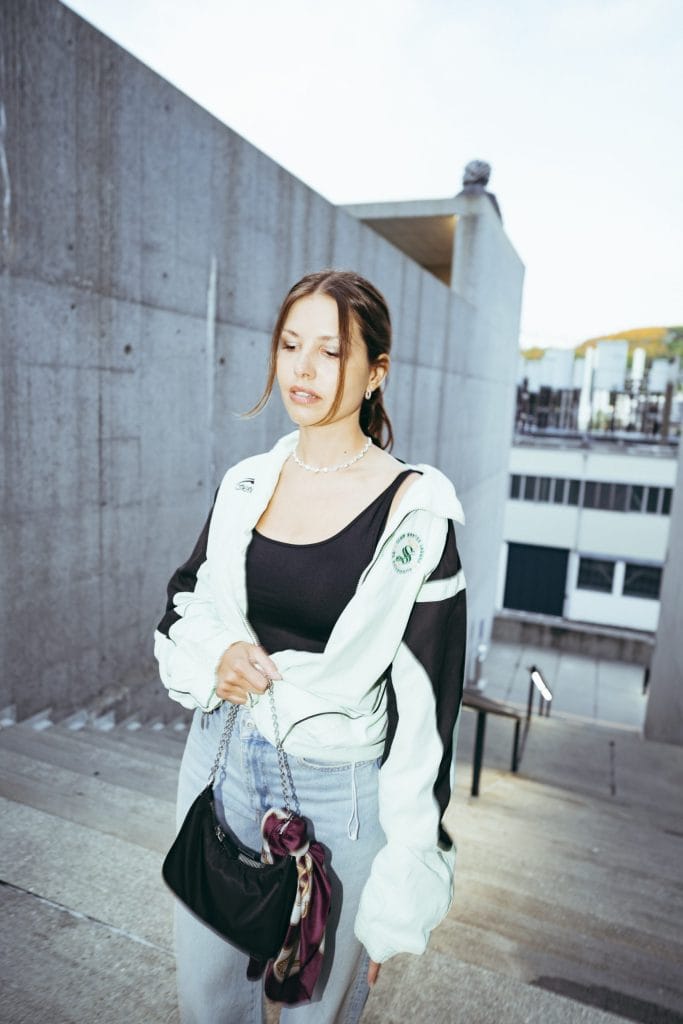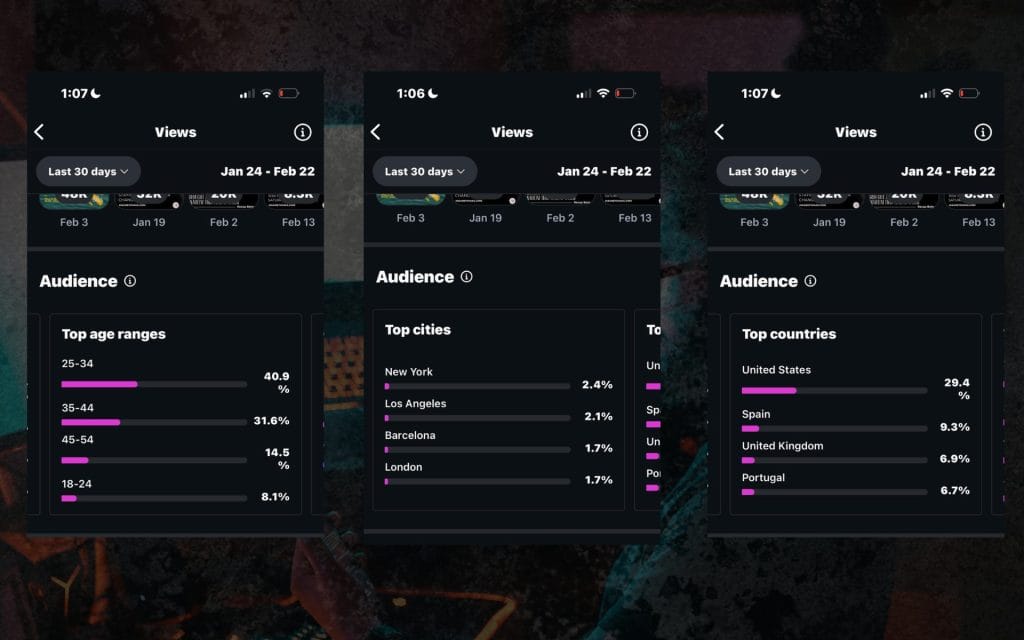Photo Cred: Adrin Fretz
Swiss-born, London-based producer and live artist Sensu returns this fall with Pure Motion, a six-track EP on Headroom Records. Out September 5, the project captures her instinct-driven approach to production, blending UK garage, breakbeat, bass, and ambient textures into something raw, emotional, and direct. At its center sits the focus track Wanna See U Again, built around a vocal sample that became the emotional anchor for the entire record.
In this interview, Sensu talks about instinct, creativity, and the freedom she found in letting go of expectations. Her answers reflect the same balance that defines Pure Motion—club energy paired with emotional depth, and an emphasis on honesty over perfection.
Do you still think in genres when you build a set—or has that structure started to dissolve for you?
Not really. I don’t think I ever did, to be honest. For me it’s always been more about dynamics, emotions, and tuning into the people’s vibe. I also just follow my own thing, and a big part of that is testing out new tracks I’m working on and sharing the tunes that hit me the hardest.
Have you noticed more DJs blending styles and moods in ways that didn’t feel possible ten years ago?
I actually come more from a hip hop background, and it’s only in the last few years that I’ve really started going to see DJ sets from my favourite producers. But yes, I do think especially in the UK scene you hear a lot of genre-blending sets. It just makes things more fun and keeps the energy interesting. Maybe it’s also a reflection of our time. People have less patience now and get bored quickly. If a DJ plays three hours of house tracks in the same style, chances are the crowd will drift off.
Is there a downside to post-genre clubbing—like a loss of specificity or identity in sound?
I don’t really see it as a downside. If anything, the fact you can share your own music so easily these days has pushed loads of people to start producing. Big artists inspire the younger ones to get creative too.
The only thing that feels a bit off is when someone tries to copy another artist’s sound one-to-one instead of putting their own twist on it.
What’s one unexpected combination of styles that’s worked surprisingly well in your sets?
Hard to say, really. But since I’m also a metal fan – and after seeing Four Tet drop System of a Down in one of his sets – I have to admit the idea of sneaking something like that into mine really tempts me, haha.
Do you think crowds care about genre anymore—or are they responding to something else entirely?
I think it really depends on where you play. In the UK, for example, people are generally much more tuned in. Especially in this scene, there’s a real depth of knowledge and it’s part of the culture. In Switzerland it’s a bit different. I notice that in some cities the UK bass sound can still feel a bit overwhelming, so you tend to reach people more easily with something a bit more on the housey side.
How do you make sure your sets still feel cohesive when you’re moving across sounds and eras?
I mostly just trust my gut and keep the focus on emotion. Sometimes it flows perfectly, sometimes a bit less. I guess that’s part of the game. 
What’s a genre you never thought you’d play—but now it feels at home in your rotation?

Back when I was a full-on 90s rap fan, I never would’ve imagined myself playing the kind of stuff I do now. That old version of me would probably be pretty shocked, but it’s been a natural progression. My inspirations have just pulled me in this direction over time, and now it feels completely at home.
You’ve called Pure Motion a “creative reset.” What did that reset look like for you, and how did it influence the way you approached the EP?
That reset really helped me reconnect with the passion and joy in what I’m doing, and I’ve tried to keep the focus completely on that. Because honestly, what’s the point if you lose that feeling? I think that’s why the tracks came out sounding free, and maybe that’s also why people can connect with them or feel something emotional in them.
“Wanna See U Again” started with a vocal sample you held onto for a long time. What was it about that sample that stayed with you and eventually became the centerpiece of the project ?
That one’s actually the newest track on the project. I just fell in love with the melody of the sample straight away. It had this emotional pull I couldn’t shake. It stuck with me to the point where I felt I had to build something around it, and the whole song basically grew out of that feeling.
How do you find the balance between emotional depth and club energy?
Honestly, I don’t know if there’s a formula. I just love those breakdowns that send you into another sphere, and then the drop that pulls you right back. I love it when tracks (even without lyrics) can tell a story and take you on an emotional journey. That’s what I’m always trying to do, really.
You’ve had great support from DJs and outlets across the scene. Has that feedback shaped the way you see your music, or do you prefer to keep your process more instinctive?
I really appreciate all the support, but I try not to let it steer me too much. I want to keep things instinctive. If one day I feel like making a punk track, then I’ll just do that. For me it’s always about following whatever brings me the most joy in the moment.
Outside of the studio, what inspires you most (books, films, everyday life) ?
Pretty much everything, really. But I’d say it’s often a certain mood from a film, or the vibe of a track.. not something I can clearly define, and it can change from day to day. And of course, just conversations with people can be a big source of inspiration too.
If you had to describe Pure Motion in just three words for someone who’s never heard your music, what would they be?
Euphoric, clubby, emotional… but you tell me! 
The post Sensu talks instinct, honesty, and her six-track EP Pure Motion appeared first on Magnetic Magazine.






